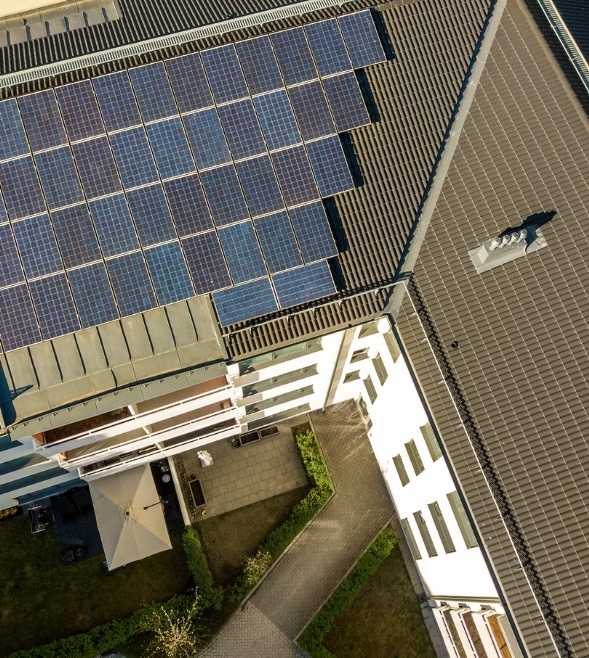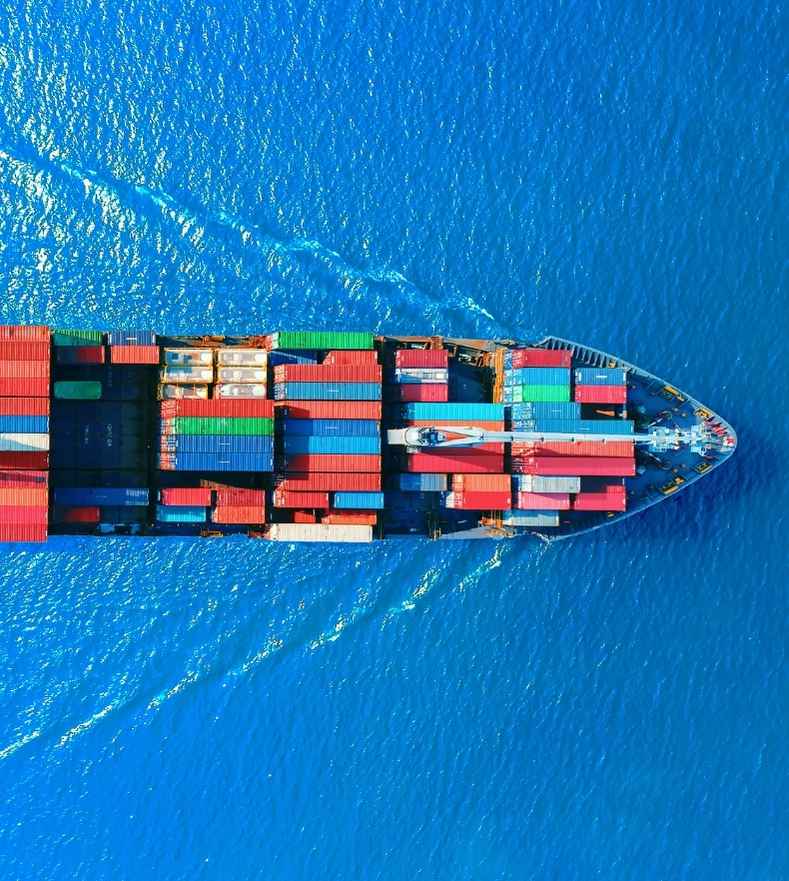-
Financial administration & outsourcing
Entrepreneurs who outsource financial administration reduce the number of administrative tasks and consequently have more time and space to focus on growth.
-
Financial insight
We help you turn financial data into valuable insights that support you in making well-founded decisions. In-depth analyses of your financial situation will help give you a better idea of where you stand and where the opportunities for growth lie, both in the short and long term.
-
Financial compliance
We make sure your company complies with financial legislation and regulations, with correct financial statements, tax reports and other obligations. From our global network, we support you in managing local and international tax risks.
-
Impact House by Grant Thornton
Building sustainability and social impact. That sounds good. But how do you go about it in the complex world of stakeholders, regulations and frameworks and changing demands from clients and society? How do you deal with important issues such as climate change and biodiversity loss?
-
Business risk services
Minimize risk, maximize predictability, and execution Good insights help you look further ahead and adapt faster. Whether you require outsourced or co-procured internal audit services and expertise to address a specific technology, cyber or regulatory challenge, we provide a turnkey and reliable solution.
-
Cyber risk services
What should I be doing first if my data has been kidnapped? Have I taken the right precautions for protecting my data or am I putting too much effort into just one of the risks? And how do I quickly detect intruders on my network? Good questions! We help you to answer these questions.
-
Deal advisory
What will the net proceeds be after the sale? How do I optimise the selling price of my business or the price of one of my business activities?
-
Forensic & integrity services
Do you require a fact finding investigation to help assess irregularities? Is it necessary to ascertain facts for litigation purposes?
-
Valuations
Independent and objective valuations tailored for mergers, acquisitions, and legal matters.
-
Auditing of annual accounts
You are answerable to others, such as shareholders and other stakeholders, with regard to your financial affairs. Financial information must therefore be reliable. What is more, you want to know how far you are progressing towards achieving your goals and what risks may apply.
-
IFRS services
Financial reporting in accordance with IFRS is a complex matter. Nowadays, an increasing number of international companies are becoming aware of the rules. But how do you apply them in practice?
-
ISAE & SOC Reporting
Our ISAE & SOC Reporting services provide independent and objective reports on the design, implementation and operational effectiveness of controls at service organizations.
-
National tax advice
Looking for tax advice in the Netherlands? We help business owners with tailor-made tax advice: from structure and compliance to innovation and sustainability.
-
International tax advice
Plan to do business abroad? Our international tax advice helps you with structure and compliance, as well as offering new opportunities. Strategic, practical, and future-oriented.
-
Private wealth services
Our Private Wealth specialists offer strategic and practical solutions. From tax advice to estate planning and financial scenarios, we make sure you make the right choices today, for tomorrow.
-
Corporate Law
From the general terms and conditions to the legal strategy, these matters need to be watertight. This provides assurance, and therefore peace of mind and room for growth. We will be pro-active and pragmatic in thinking along with you. We always like to look ahead and go the extra mile.
-
Employment Law
What obligations do you have with an employee on sick leave? How do you go about a reorganisation? As an entrepreneur, you want clear answers and practical solutions to your employment law questions. At Grant Thornton, we are there for you with clear advice, from contracts and terms of employment to complex matters such as dismissal or reorganisation.
-
Sustainable legal
At Grant Thornton, we help companies integrate sustainability into their business operations, with sustainable legal at the heart of our approach. We advise on ESG (Environmental, Social, Governance) legislation, and help draft sustainable contracts, implement HR policies, and carry out ESG due diligence in M&A transactions (Mergers and Acquisitions).
-
HR Services
HR is not an aspect of secondary relevance, rather a strategic factor for success. Yet many organisations struggle with issues regarding personnel policy, absenteeism, terms of employment and legislation and regulations.
-
Payroll & wage tax
Payment of salaries is not a simple calculation. Laws and regulations constantly change, and mistakes can quickly cause employees to be dissatisfied or lead to tax risks.
-
Compensation and benefits
The labour market is changing rapidly. Employees want flexibility, a sense of purpose and a good mixture of financial and non-financial benefits.
-
Pension advisory services
Pension is more than an obligation. It is a strategic term of employment that touches upon your employer brand, financial scope and responsibility to provide for your employees.
-
Global mobility services
How can you build and evolve a smart global mobility strategy, with policies and processes addressing the complex challenges of managing an international workforce?
Together we clear the path for a sustainable and bright financial future
Firstly, a sustainable business must ensure the necessary short-term needs are met while securing its long-term value creation and ensuring the organisation stays future-proof. Not only should the company have a positive impact on the environment and society as a whole, it also has a strong brand image, with employees who are engaged in the process, as well as ensuring cost savings where possible. This can include various tax benefits, for instance, in the form of grants or subsidies, or other tax rebates.
At the same time, several requirements need to be met, for example, on cost-increasing items, environmental taxes on activities that cause pollution, penalties, and the increasing demands placed on financial reporting. Our team offers advice on responsible tax compliance, the development of an efficient sustainability strategy, and how to capitalise on opportunities that arise within this framework.
Governments worldwide are increasingly placing higher demands on sustainability and transparency, including through tax measures that promote ethical business practices, fair compensation, and social responsibility. As a result, business owners are faced with a range of different challenges. Companies that consistently meet these requirements benefit from greater stability and predictability, enhancing their reputation in the process. Transparency and compliance make predicting tax obligations and making strategic investment decisions easier.
How do we help you?
Our team carries out a ‘health check’ on your tax strategy. We evaluate current policies, with sustainability in mind, aiming to address challenges and identify opportunities.
We analyse all aspects of the relevant measures concerning your business, and we provide you with expert guidance in dealing with the tax implications surrounding these measures.
We also offer guidance on transparent financial reporting. Global standards are changing rapidly, and the higher demands are being placed on transparency in (sustainability) financial reporting and communications. Our knowledge and expertise ensure that your company is always up to date.
We assist in compliance with your business's various tax and sustainability measures. Based on this guidance, your company can ensure that societal expectations and standards are met.
What do we offer?
- Advice on the impact of sustainability measures.
- Assistance with the request process and application of tax schemes (e.g. EIA, MIA, Vamil, WBSO, Innovation Box).
- Support in establishing the necessary transparency requirements. This includes (public) CbCR, the Global Minimum Tax Act (Pillar Two), and transparency legislation such as DAC guidelines and ATAD.
- Guidance when it comes to meeting CBAM obligations (“Carbon Border Adjustment Mechanism”) and compliance with the EU's Deforestation Regulation of “EUDR”.
- Our one-stop-shop approach assists in building corporate social responsibility, capitalising on opportunities and meeting increasingly stringent transparency requirements.
How does it benefit you?
Organising your sustainability strategy in the right way increases your access to capital, reduces risk and manage the increased reporting requirements involved.
Sustainable tax strategies create trust with investors and stakeholders, as well as making a fair contribution to society.
Sustainable investments take advantage of the available facilities. This way your company does not miss out on the various benefits available.
Advantages
- Make the most of potential subsidies and tax benefits available for sustainable investments.
- Compliance with fiscal and sustainability obligations prevents unpleasant surprises further down the line.
- Transparency reports prevent reputational damage and clarify external communications.
- Long-term durability, which improves competitive position.
- Stronger position towards investors and stakeholders
- Tax strategy that grows hand-in-hand with your ambitions.
Do you have any questions for us?
Contact one of our specialists for more information about the services we provide.
Why choose for Grant Thornton?
Grant Thornton Netherlands is a member of Grant Thornton International Ltd (GTIL), one of the world's largest networks (#7) of independent accounting and advisory firms, with 76,000 professionals in 156 markets. From eight Dutch offices, more than 700 professionals support our clients with advice and guidance in the fields of accountancy, tax, and (financial) advisory. We deliver world-class expertise in a way that seamlessly aligns with each client's unique situation. We operate from a solid foundation with a flexible and results-driven mindset.









